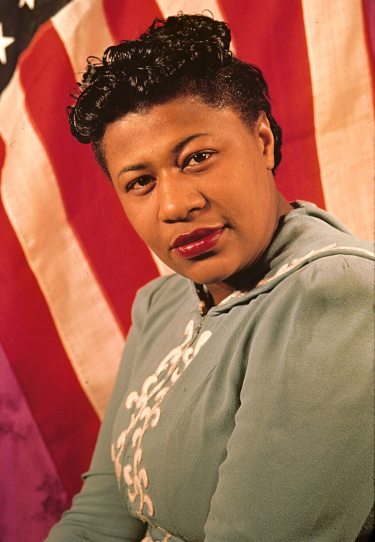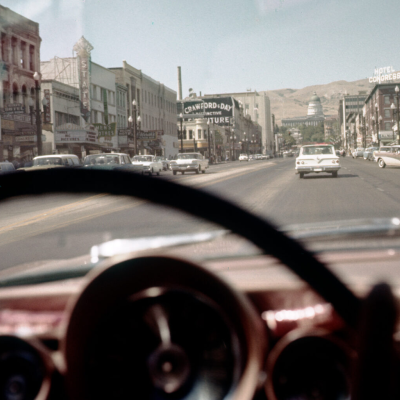“Piano Hands,” a story by Charis Shin, was a finalist in our recently concluded 47th Short Fiction Contest. It is published with the permission of the author.
Piano Hands
by Charis Shin
He had beautiful hands — hands with long, slender fingers meant to caress ivory piano keys. Knuckles, she knew, were never the most flattering part of anyone’s body — gnarled and raisin-like skin stretched over delicate bones. And yet, there was a certain beauty in the way his knuckles bent and flexed over the piano, so she protested bitterly when he became a mechanic to make ends meet.
“We’ve got bills to pay,” he said with a matter-of-fact shrug, “And I can always play at home.” From that day on, he woke up every morning with the sun. She could never rouse her own body early enough, rising only to give him a groggy kiss before her drowsiness pulled her back under. But she would wake up later, with the rising guilt in the pit of her stomach keeping her from eating breakfast.
She would sit at her office desk, tracing her finger in the thin layer of dust blanketing it as she stared at the blinking cursor on her laptop. She had thought, once, that it was the laptop that was the problem, and had bought a beautiful leather-bound notebook on a whim. But just a few days later, she spilled coffee on its thick, cream colored pages, and was filled with such inexplicable anger that she tried to tear the book to shreds. Its leather had refused to yield, and she sat and cried in the middle of the linoleum kitchen floor until he came home from work.
He knelt down next to her, pulling her close to his heart, and its gentle beating soothed her until she could feel the pieces of herself clicking back together. She clasped his hand in hers, and she saw how motor oil and grease had made permanent homes underneath his nails, how his palms were rough and weathered. Her distress must’ve shown on her face, because he laughed and lifted up her chin so she would meet his eyes.
“Just write, my dear.” And then she understood that he had quit performing for her, so that she could sleep in on the mornings when gravity seemed stronger than normal and dragged her mood down, so that she could stay home and write like she had dreamed of doing since childhood, while he tinkered with cars even though he had always been more of a bike person.
But there was a clamp around her creativity that tightened whenever she sat down to write, and that tightness would spread to her throat, preventing her from speaking her mind. At first, she blamed the pills that she took every morning– blamed them for the hollowness that would blanket her thoughts. And yet, she knew that she could not stop taking them. She remembered, one day, how she had watched a documentary about victims of severe hypothermia, how, when it got cold enough, the blood in their bodies would rush away from the extremities to the vital organs. Perhaps, she mused, that was what was happening to her. All of the energy backing her creativity was being sapped so that she could muster the strength to wake up on the days that the world had a bleak gray tint.
And so she could not write, no matter how hard she tried.
On one particular morning, she managed to get up as he did. He made her breakfast, as she fiddled with the coffee pot and tried to figure out where the bottle of creamer was, and then she waved him out the door with a promise that she would see him in a few hours. Her heart lightened when, as he pulled out of the driveway, he rolled down the window and blew her kiss, and she spent the next few hours watching blinking cursors and empty pages, waiting for him to come home. The stifling silence seemed to magnify with the ticking of the clock’s second hand, as the light outside faded into a startling darkness.
But just as her impatience and confusion began to give way to panic, the phone’s tinny ringing filled the empty house, and she felt so reassured by the sounds of something, anything, that she almost just let it ring through. Eventually, she picked it up, but once she heard the words of the stiff, formal voice on the other end, her hands began to tremble and the phone clattered back onto the receiver.
He never came home.
Two months after that day, she pulled out the same leather notebook for the first time in what seemed like years. Her hands shook as she flipped through its warped, coffee-stained pages, and almost without thinking, she reached for the pen resting on her nightstand. “Write for me.” She could almost feel him whisper over her shoulder, could almost feel his piano hands wrap around hers, guiding the pen to meet the paper. “Write for me,” he whispered again, as the cloudiness in her consciousness slowly washed away. “Write for me,” he said a final time, shaking loose the stopper on her creativity.
And so she wrote.
_____
Charis Shin is currently a high school junior attending a public magnet school with a concentration in business and finance. Although she has had a lifelong love for books, only recently has she begun to create stories of her own. She hopes to continue this pursuit in the future.







































Great job – I have lived this life once.
I love this! It’s a world I’ll be back to visit again. Keep writing!